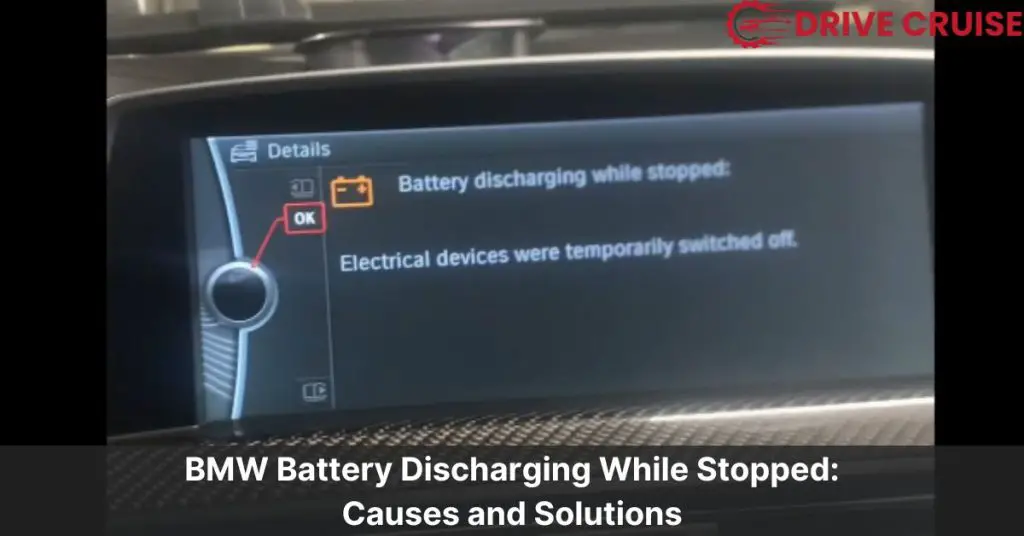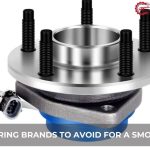It’s frustrating to come back to your BMW after leaving it parked for a while, only to find that the battery is dead. This issue can be caused by a variety of factors, and it’s important to identify the root cause to prevent it from happening again. In this guide, we’ll walk you through the potential reasons for your BMW battery discharging while stopped, and provide you with the tools to solve the issue.
One of the most common causes of battery drain while parked is a faulty battery. If your battery is old or damaged, it may not be able to hold a charge, which can lead to a dead battery after an extended period of inactivity. However, there are other potential culprits, such as problems with the alternator, starter motor, ignition switch, or electronic devices connected to the 12-volt outlet. By following the steps outlined in this guide, you’ll be able to identify the cause of your battery drain and take the necessary steps to fix it.
Prevention is key when it comes to battery drain while parked. By taking proactive measures, you can avoid the frustration of a dead battery. We’ll provide you with tips on how to prevent battery drain, such as avoiding short trips and infrequent driving, and ensuring that all electronic devices are turned off before leaving your car parked. With the information provided in this guide, you’ll be equipped to diagnose and solve any issues related to BMW battery discharging while stopped.
Understanding Battery Drain in Modern BMWs
If you own a modern BMW, you might have experienced issues with battery discharge while stopped. There are several factors that can contribute to this problem, including increased electronic load and a malfunctioning Intelligent Battery Sensor (IBS).
BMW cars come with a range of comfort and convenience features, such as automatic climate control, memory seats, and infotainment systems. Even when the car is turned off, these features can draw a parasitic current, leading to battery drain. To minimize this problem, BMWs employ a “sleep mode” to reduce the current draw. However, certain modules might not enter sleep mode properly, leading to excessive current draw.
Another factor that can contribute to battery drain in BMWs is a malfunctioning IBS. The IBS is responsible for monitoring battery health, charge status, and current draw. If the IBS is not functioning properly, it can provide inaccurate data to the car’s computer, leading to improper charging or unnecessary battery drain.
To prevent battery discharge while stopped, it is important to keep your BMW’s electronics in check. You can do this by turning off all non-essential features when the car is not in use. Additionally, you should have your car’s battery and IBS checked regularly to ensure they are functioning properly.
Sherlock Holmes for Your Battery: Identifying the Culprit
Diagnosing a battery drain in your BMW requires a systematic approach. Follow these key steps to pinpoint the hidden culprit.
Assess the Situation
If you’re experiencing difficulty starting your car after it has been parked for several hours or overnight, or if you notice dimming interior lights or sluggish electronics upon startup, then you may be dealing with a battery that discharges while stopped.
Noting how long it takes for the battery to drain can offer clues. A quick drain might indicate a major culprit, while a slower drain suggests a smaller parasitic current draw.
Employ the Multimeter
A multimeter is a handy tool for measuring electrical current. With the car off and all accessories turned off, use the multimeter to measure the current draw at the battery terminals.
Modern BMWs typically have a small baseline current draw (around 50 mA or less) to power essential functions like memory and clock. Anything exceeding 100 mA for an extended period is likely a cause for concern.
BMW’s often have fuse boxes in the trunk and engine compartment. By systematically removing fuses and monitoring the current draw, you can isolate which circuit is responsible for the excessive drain.
Consult Your BMW Specialist
Modern BMW electrical systems can be intricate. If you’re uncomfortable using a multimeter or suspect a deeper issue like a faulty IBS module, consulting a qualified BMW specialist is recommended. They possess the specialized tools and expertise to diagnose the problem accurately.
If you’re experiencing a battery discharged while stopped BMW, then following these steps can help you identify the culprit and get your car back on the road.
Preventing the Drain: Keeping Your Battery Healthy
Taking proactive measures to minimize battery drain and extend the lifespan of your BMW’s battery can save you time, money, and frustration in the long run. Here are some tips to help keep your battery healthy:
Minimize Accessory Use While Parked
When the car is off, avoid leaving electronic features like interior lights or the infotainment system on for extended periods. Turning off these accessories can help reduce the load on the battery and prevent unnecessary drain.
Battery Maintenance
Maintaining a clean and corrosion-free connection between the battery terminals and cables can help ensure proper charging and prolong the life of your battery. Consider investing in a battery maintainer for long-term storage situations. This device can help keep your battery charged and healthy when the car is not in use.
Software Updates
BMW periodically releases software updates that can address known electrical issues, including battery drain problems. Ensure your BMW’s software is up-to-date to take advantage of any improvements or fixes that may be available.
Conclusion: A Charged-Up Future for Your BMW
In conclusion, a BMW battery discharging while stopped can be a frustrating issue to deal with. However, by following the tips and tricks we’ve outlined in this article, you can take steps to avoid this problem and ensure your battery stays charged and ready to go.
One of the most important things you can do is to drive your BMW regularly, especially if you take frequent short trips. This will help keep your battery charged and prevent it from draining over time.
In addition, it’s important to check your battery regularly and replace it if it’s more than five years old or not holding a charge. You can also use a multimeter to check the voltage of your battery and ensure it’s within a healthy range.
Other preventative measures include avoiding excess electrical demand by turning off accessories when they’re not in use, parking in a warm garage during cold weather, and communicating with your BMW dealer if you’re experiencing any issues.
Related Posts:









